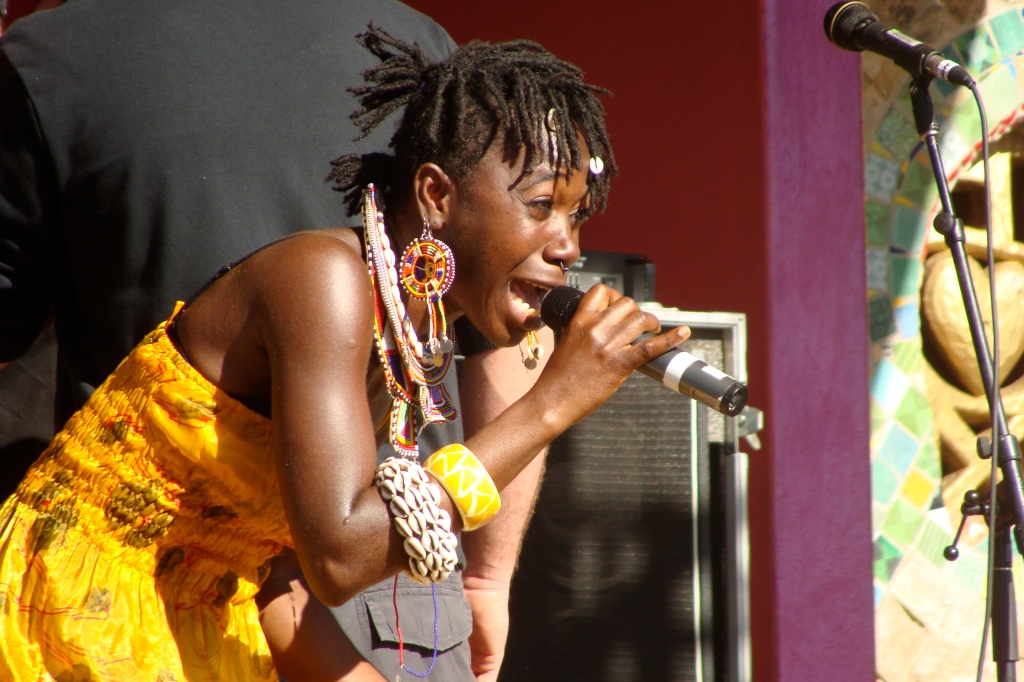From the mainstage to the spoken word tent at Swaziland’s Bushfire festival, JHR reporters Sarah Berman and Sarah Feldbloom explore the power of poetry in southern Africa. Photo by Sarah Berman.
BY SARAH BERMAN AND SARAH FELDBLOOM, TORONTO STAR
Sound bite: D’bi Young performs “Dub for Swazi People”
Sound bite: Croc E Moses performs “Pace and the Pulse and the Peace”
On the mainstage at the Bushfire Festival in Ezulwini, Swaziland, Canadian-African spoken word artists D’bi Young and Croc E Moses take turns casting adjectives and adverbs into a dense crowd.
The poetry of southern Africa is a different beast than the one that lives in dark bars and sparse cafes in Canada—it garners an elevated level of respect. Though Young and Moses hail from Canada, they both chose Capetown, South Africa, as a place to conduct art-making for several reasons.
Young, a Jamaican-born, Toronto-based poet explains that Africa is the home of spoken word because of its oral storytelling traditions, what she calls “the genesis of life, which then spread throughout the rest of the world.”
Moses, originally from Yellowknife, suggests that it’s the paramount celebration of rhythm in African culture that makes spoken word so special here. He also says there is more “dream space” in this part of the world, built from the tradition of using creative forms to deal with issues.
And what are the issues most commonly faced in southern African countries today? It is too easy to name them: the HIV/AIDS epidemic, gender inequity, mass poverty, high levels of illiteracy and lack of political freedom for citizens, among others.
It is for this reason that Moses finds it hard to connect with the use of poetry as a mode for entertainment as it commonly is in the West.
“In southern Africa you get exposed to extremes,” he says. “There’s a different level of consciousness.”
For Young there exists a noticeable divide between the culture of spoken word art in Africa and the West as well.
“You’ll see that in North America because of the incredible commercialization of art practice and art-making, there’s another model [of expression],” she says.
Bushfire and other festivals in southern Africa create opportunities for performers to come together and discuss rights issues through art under the safeguard of an international public eye. Community-oriented initiatives like Bushfire serve, more than anything, as a platform to address social issues. This festival, in particular, holds the mandate to donate 100% of its proceeds to HIV positive orphans in Swaziland – the country with the highest HIV rate in the world.
From the mainstage to the spoken word tent, poetry is playing a big role in raising consciousness.
“To me poetry is about clarity,” says Moses. “The more clarity we have about ourselves as individuals the more understanding we can have for others – that’s what’s shared a lot among people here, and that’s how change can happen slowly but surely.”


You must be logged in to post a comment.